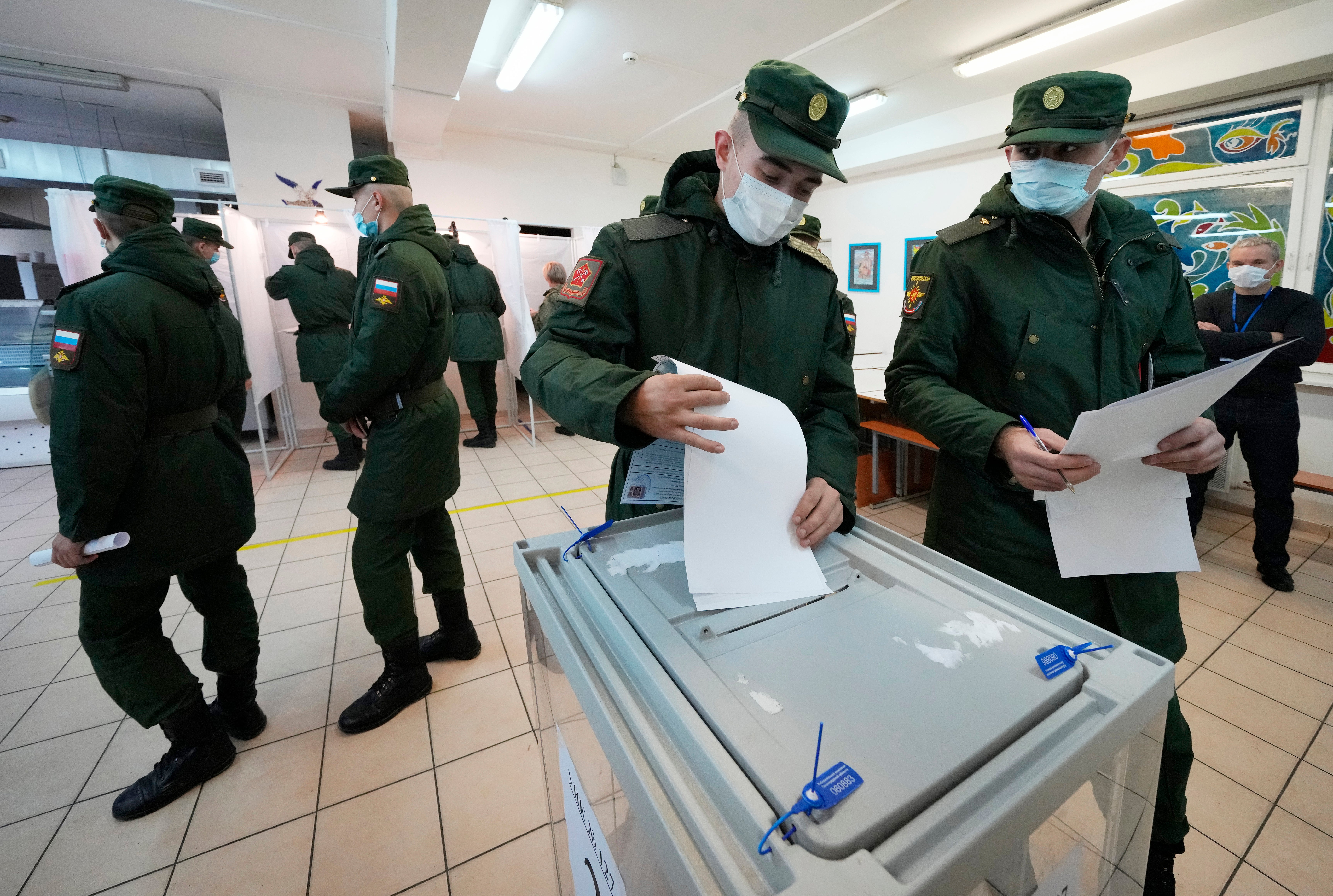Navalny app removed from online stores as Russian polls open
An app created by allies of imprisoned Russian opposition leader Alexei Navalny disappeared from Apple and Google stores on Friday as polls opened across Russia for three days of voting in a parliamentary election

Your support helps us to tell the story
From reproductive rights to climate change to Big Tech, The Independent is on the ground when the story is developing. Whether it's investigating the financials of Elon Musk's pro-Trump PAC or producing our latest documentary, 'The A Word', which shines a light on the American women fighting for reproductive rights, we know how important it is to parse out the facts from the messaging.
At such a critical moment in US history, we need reporters on the ground. Your donation allows us to keep sending journalists to speak to both sides of the story.
The Independent is trusted by Americans across the entire political spectrum. And unlike many other quality news outlets, we choose not to lock Americans out of our reporting and analysis with paywalls. We believe quality journalism should be available to everyone, paid for by those who can afford it.
Your support makes all the difference.An app created by allies of imprisoned Russian opposition leader Alexei Navalny disappeared from Apple and Google stores on Friday as polls opened across Russia for three days of voting in a parliamentary election.
It comes as Russian authorities seek to suppress the use of Smart Voting, a project designed by Navalny to promote candidates that are most likely to defeat those backed by the Kremlin This weekend's election is widely seen as an important part of President Vladimir Putin s efforts to cement his grip on power ahead of the 2014 presidential election, for which control of the parliament is key.
Apple and Google have come under pressure in recent weeks, with Russian officials urging them to remove the app, which features Smart Voting, saying failure to do so will be interpreted as interference in the election and threatening them with fines.
Last week, Russia's Foreign Ministry summoned U.S. ambassador John Sullivan over the situation.
On Thursday, representatives of Apple and Google were invited to a meeting in the upper house of Russia's parliament, the Federation Council. The commission said in a statement after the meeting that Apple agreed to cooperate with the Russian authorities.
Apple and Google have not responded to a request for comment.
In recent months, authorities have unleashed a sweeping crackdown against Navalny’s allies and supporters in an effort to suppress Smart Voting.
After recovering from poisoning with a nerve agent last year, Navalny was given a 2½-year prison sentence for violating parole over a previous conviction. He says both the poisoning and the conviction were politically motived — charges the Kremlin denies.
His top allies were slapped with criminal charges, and his Foundation for Fighting Corruption, as well as a network of regional offices, have been outlawed as extremist organizations. That has exposed hundreds of people associated with the groups to prosecution. Many of his top associates have left the country. About 50 websites that his team ran have been blocked, and dozens of regional offices have been closed.
The authorities have moved to block the Smart Voting website as well, but some internet users can still access it.
Navalny's close ally Ivan Zhdanov on Friday tweeted a screenshot of what appears to be an email from Apple, explaining why the app should be removed from the store. The screenshot cites the extremism designation for the Foundation for Fighting Corruption and allegations of election interference. “Google, Apple are making a big mistake,” Zhdanov wrote.
Leonid Volkov, Navalny's top strategist, wrote on Facebook that the companies “bent to the Kremlin's blackmail.”